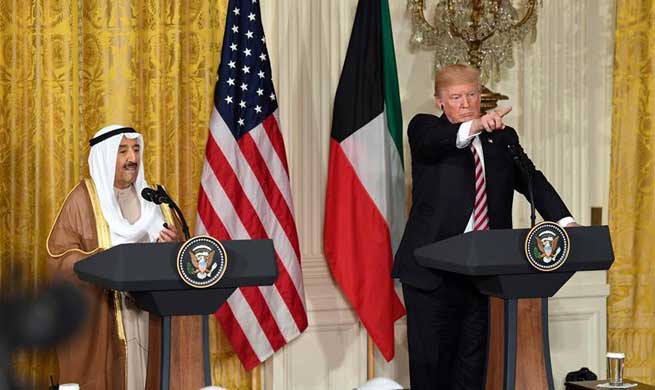KUALA LUMPUR, Sept. 8 (Xinhua) -- As protectionism is on the rise in certain parts of the world, the proposed Regional Comprehensive Economic Partnership (RCEP) slated to be finalized by the year-end, is seen as a key trade pact to accelerate the regional economy.
Malaysia's Sunway University Business School's economist Yeah Kim Leng told Xinhua recently that given the leading role of China in RCEP and its expanding trade and investment ties with the smaller Asian economies, RCEP has the potential to accelerate the region's economic integration as a counter to the anti-trade and anti-globalization policy stance adopted by the United States under President Donald Trump.
The RCEP has long been touted as the most likely mega free trade agreement to take place following the decision by U.S. President Trump to ditch the Trans-Pacific Partnership (TPP).
By further lowering tariff and non-tariff barriers to trade and investment, the former Malaysia's RAM Ratings chief economist believes that RCEP can bring about greater economic efficiency and stability in the Asian region through trade, investment and transfer of technology, and importantly, the recycling of savings surplus into productive investments within the region,
"As an open economy with rising trade volume with China and other Association of Southeast Asian Nations (ASEAN) member countries, Malaysia will be a key beneficiary of the lowering of trade and investment barriers within the region," he added.
RCEP tries to link the 10 ASEAN members with six countries that ASEAN already has existing free trade agreements with, namely China, India, Japan, South Korea, Australia and New Zealand.
The discussion on the pact is scheduled to be finalized by the end of this year.
Concurred with Yeah, Edward Lee, head of ASEAN Economic Research at Standard Chartered Bank, also holds a positive note on RCEP.
"Concerns over anti-globalization had picked up over the last one to two years. The failure of TPP to pass is a disappointment. RCEP will be helpful to assuage concerns that globalization is dead," he told Xinhua recently in an email.
He said lower trade barriers would enhance consumer and business opportunities in the region.

















